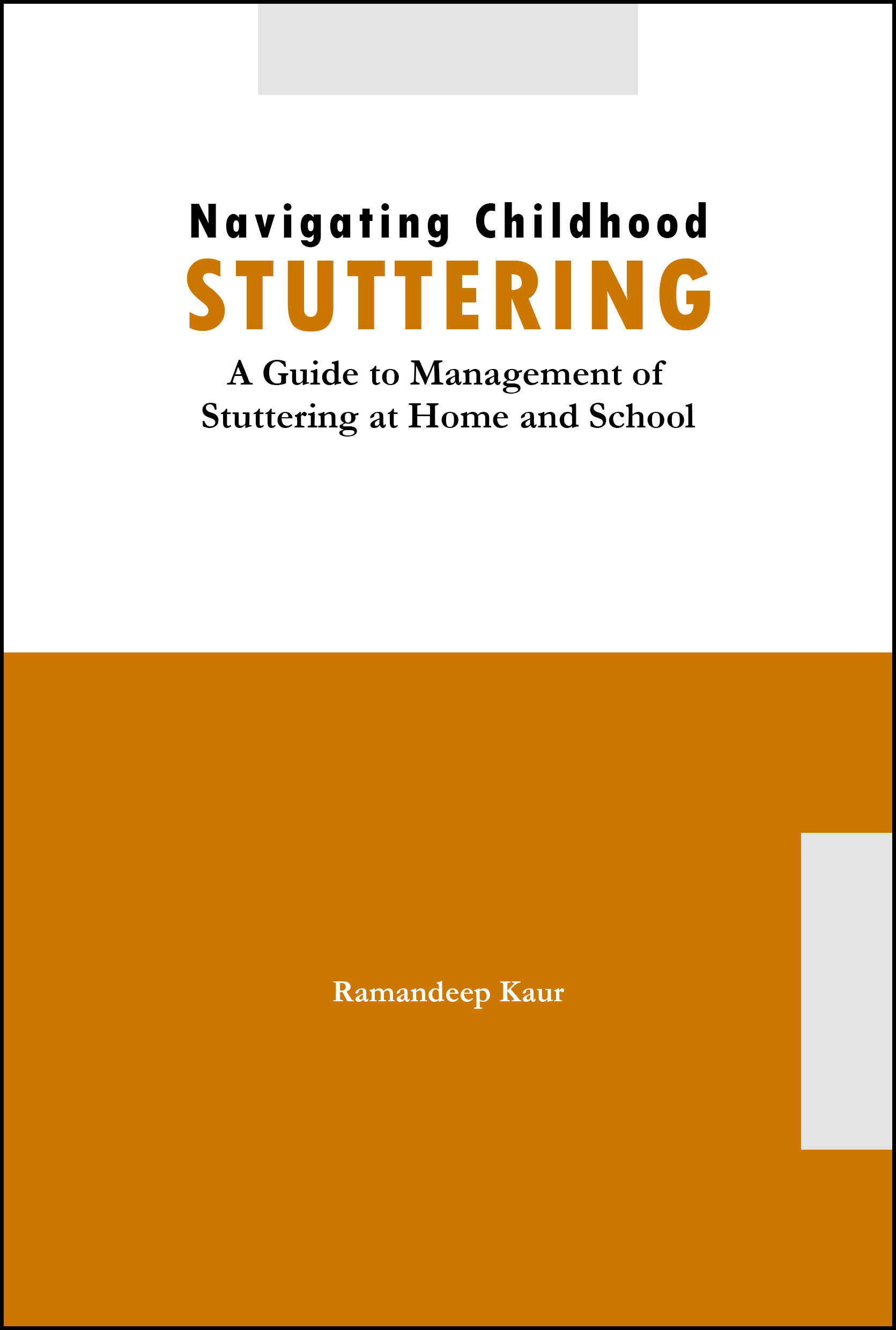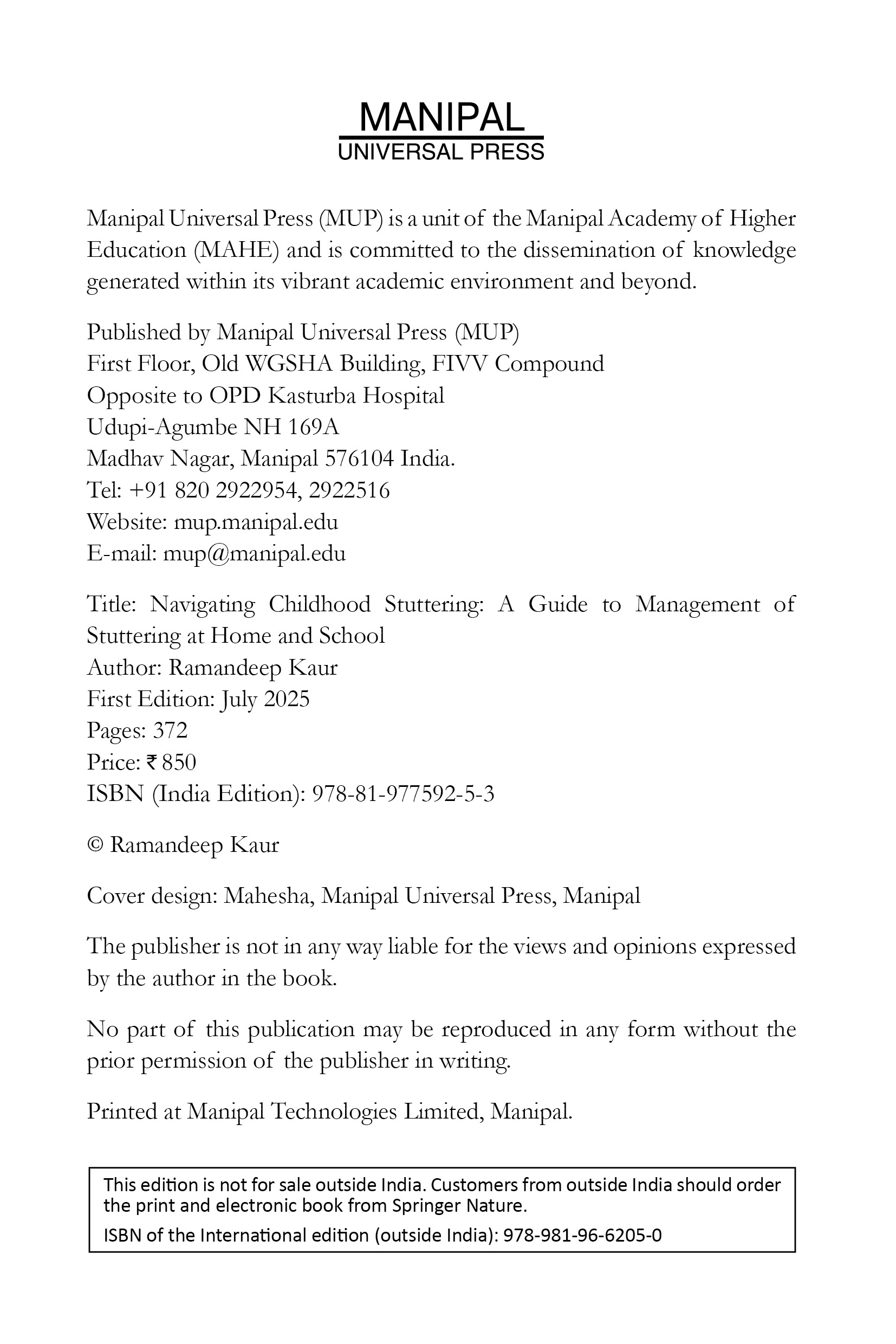Navigating Childhood Stuttering: A Guide to Management of Stuttering at Home and School
₹850.00
Author: Ramandeep Kaur
Navigating Childhood Stuttering: A Guide to Managing Stuttering at Home and School is an essential resource for parents, teachers, caregivers, and therapists supporting children who stutter. While stuttering is a lifelong condition, it can be effectively managed with the right understanding, strategies, and consistent support. Relapses are common, particularly when children face high-pressure situations, experience low self-esteem, or fail to consistently apply fluency techniques. Environmental factors such as academic stress, peer teasing, and rapid changes in routine can also exacerbate disfluencies.
This guide provides parents, teachers, and therapists with tools to understand the complexities of stuttering and create supportive environments. It includes chapters on the basics of fluent speech, identifying relapse triggers, and integrating speech strategies into daily routines.
Using evidence-based techniques and practical exercises, the book emphasizes that stuttering does not limit a child’s potential. It also highlights the importance of fostering an environment where children feel confident and understood. The book offers actionable steps to help children build self-esteem, improve communication skills, and thrive socially and academically. It provides guidance on fostering confidence and inclusiveness, helping children feel understood and supported. By empowering families and educators with knowledge and strategies, the book aims to enhance the quality of life for children who stutter, ensuring they thrive in all areas of life.
Interested readers may write to us at mup@manipal.edu about purchasing the book.
| International Edition available on | available on |
| Author | |
|---|---|
| Format |

















